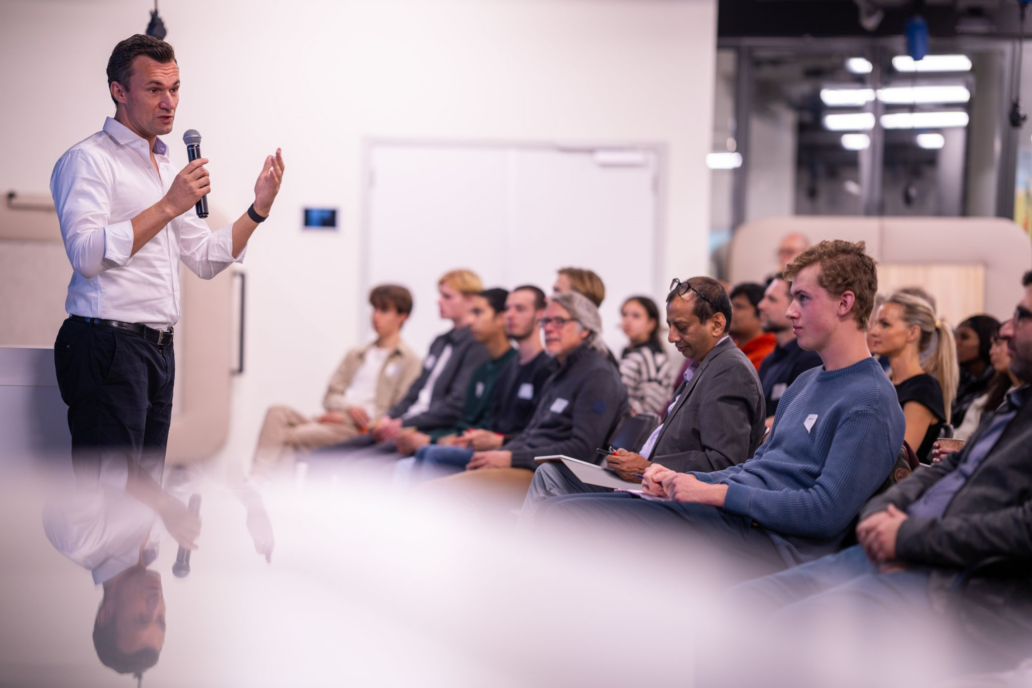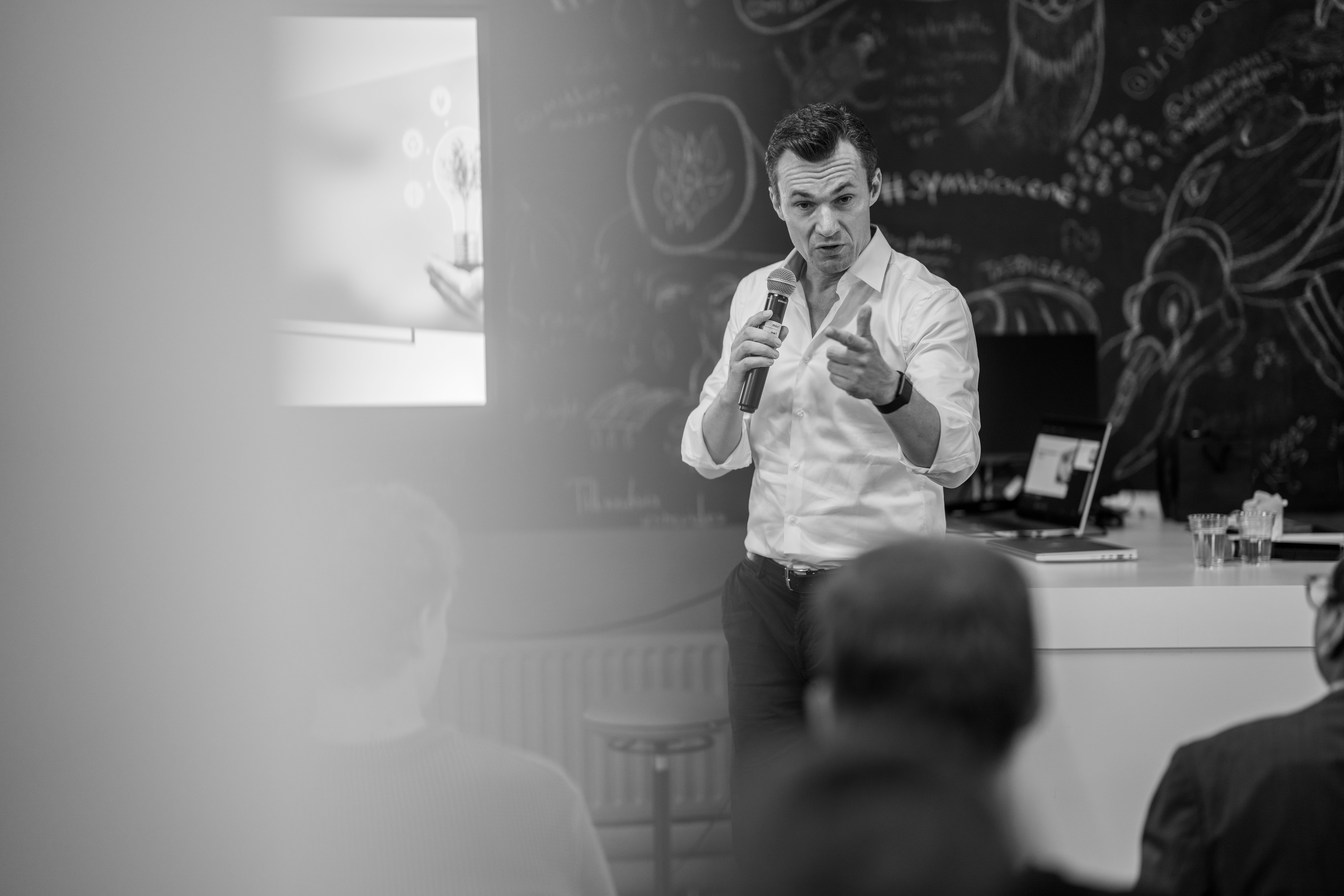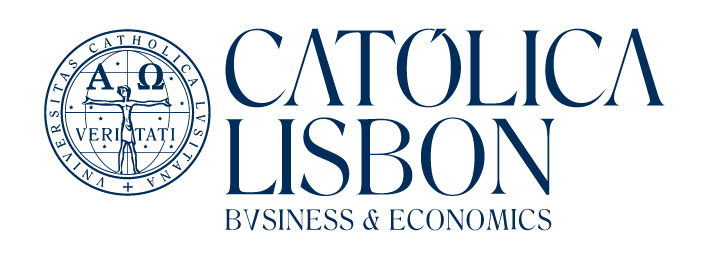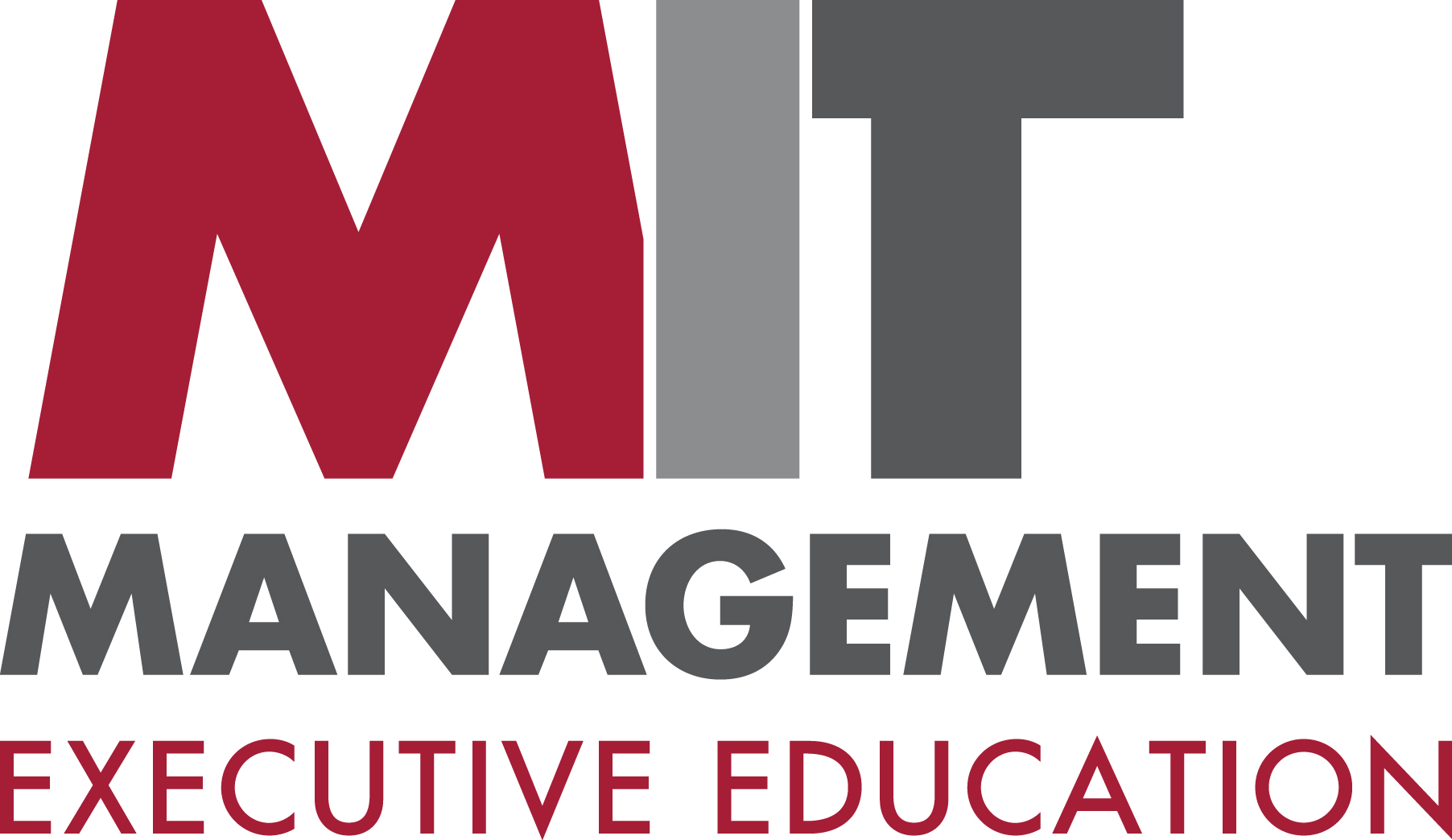
Take Control of AI Adoption
AI capabilities are advancing faster than most organisations can absorb.

Professor, entrepreneur, and strategic advisor helping global leaders navigate the AI revolution and build sustainable, innovation-driven organizations.
Weekly insights on AI strategy, innovation, and the future of business





Trusted by 5,000+ global leaders
As a Professor of Strategy and Innovation at Católica Lisbon School of Business & Economics, I've dedicated my career to understanding how organizations can harness the power of AI and sustainability to drive meaningful transformation.
My journey spans from founding five startups (with two successful exits) to advising Fortune 500 companies on their digital transformation strategies. This unique blend of academic rigor and entrepreneurial experience allows me to bridge the gap between cutting-edge research and practical business application.
Today, I work with leaders worldwide to navigate the AI revolution, helping them build sustainable, innovation-driven organizations that thrive in our rapidly changing world.

Leading AI transformation initiatives with global enterprises
Leveraging two decades of experience at the intersection of academia and industry to drive meaningful transformation in your organization.
Inspiring talks on AI, innovation, and digital transformation at global conferences and corporate events.
Tailored programs for C-suite executives and senior leaders on AI strategy and innovation management.
Strategic guidance for organizations navigating digital transformation and AI implementation.
Partnering with organizations to conduct cutting-edge research in AI and sustainability.






















Join Fortune 500 executives in comprehensive AI leadership programs designed to accelerate your organization's transformation journey.
A guided strategy sprint that aligns leaders on where AI creates advantage, and how to win.
A leadership track for current or emerging CAIOs to build the operating system for AI.
A hands-on lab for product and innovation teams to use AI across the front end of innovation.
Join over 500+ executives who have accelerated their AI journey with proven frameworks and expert guidance.
Trusted by Fortune 500 executives and industry leaders worldwide
"The Capstone has been instrumental in shaping our AI adoption initiatives, particularly around Microsoft Copilot and Falcon LLM, into the early foundations of the Smartdesk AI concept. René's sharp and challenging questions pushed us to move beyond "demo thinking" and focus instead on real-world value, adoption metrics, and long-term impact. While still in its early stages, the foundation we've built feels strong, purposeful, and ready to be acted upon."
"Rene's sessions brought real clarity to our cohort. The tools and frameworks he shared were not just insightful but actionable – and the feedback from participants exceptionally appreciative. A great experience for any organization aiming to equip entrepreneurs with practical, future-ready capabilities."
"Prof. René Bohnsack's masterclass provided exceptional clarity and insights on AI, demonstrating its potential for business, innovation and new, engaging ways of working. His masterclass, attended by more than 200 employees, was highly impactful and valuable for our entire company."
"We invited Prof. René Bohnsack to speak to our board members on ethics and governance in the age of AI. His session was both insightful and thought-provoking, engaging our members and sparking meaningful discussions that left a lasting impression."
"In our last strategy event René Bohnsack facilitated an engaging and thought-provoking training session on AI that provided us with actionable insights and strategies to leverage AI in driving innovation and business growth. The session was both inspiring and highly relevant to our mission of putting AI at the core of our digital transformation journey."
"With Play to Win Capstone, DryDocks World identified many AI use cases poised to improve productivity across our operations. The AI Trends in Business workshop revealed innovations we'd never considered. The AI Balanced Scorecard workshop showed us how to use clear KPIs to implement AI in our organization successfully. Importantly, René's energizing facilitation kept us all rowing in the same direction."
"With the Play to Win Capstone project, Dubai Airports rapidly transformed a diverse set of AI initiatives into a structured and actionable roadmap in just six weeks. The AI Trends in Business workshop gave us a clear view of how organisations are using AI to drive productivity, while the AI Balanced Scorecard workshop helped us define a holistic framework to track implementation across the enterprise. René's upbeat energy and facilitation style made the entire experience highly engaging for everyone involved."
"The structured framework of the CAIO course gave us new clarity on AI's role in the Ministry of Foreign Affairs. René translated a fast-moving, technical field into actionable insights, bridging vision and execution in a domain where the stakes are uniquely high."
"With Play to Win Capstone, Suez Canal Bank moved swiftly to an AI roadmap with actionable use cases. The AI Trends in Business workshop clarified how AI is reshaping banking while the AI Balanced Scorecard workshop revealed how AI implementation can be done with KPIs and holistically. Importantly, René's AI expert knowledge delivered in every session novel and valuable insights."
"With the Play to Win Capstone, iScore jumped from concept to a working Youth Financial Education prototype in record time. The AI Trends in Business workshop opened our eyes to novel disruptors, while the AI Balanced Scorecard workshop gave us a valuable framework to track our AI implementation. Importantly, René's relaxed humour kept momentum high, even during evening meetings."
From entrepreneur to academic leader, each milestone has shaped my unique perspective on innovation and transformation.
Founded first startup, beginning a journey of bridging academic research with practical business application.
Completed doctoral research on innovation ecosystems and sustainable business models.
Delivered first of many TEDx talks on the future of innovation and sustainability in business.
Successfully exited second venture, demonstrating the practical application of innovation frameworks.
Appointed Professor of Strategy and Innovation, focusing on digital transformation and sustainable business models.
Recognized among the world's most impactful scientists by Stanford University's global rankings.
Leading AI transformation initiatives with Fortune 500 companies and government organizations across the Middle East and Europe.
Insights on AI, innovation, and leadership worldwide.
Oct 2025 • Conference about book: Artificial Intelligence for Ecology, Health, and Education
Oct 2025 • Entrepreneurial Ecosystems
Jul 2025 • The 85th Annual Meeting of the Academy of Management
Jul 2025 • The Lisbon MBA Masterclass
Explore the latest thoughts on AI innovation, sustainability, and digital transformation